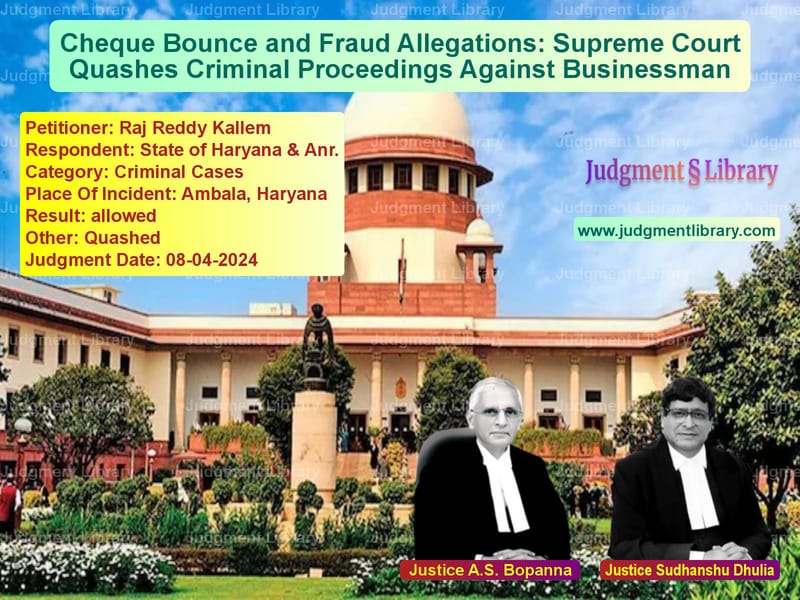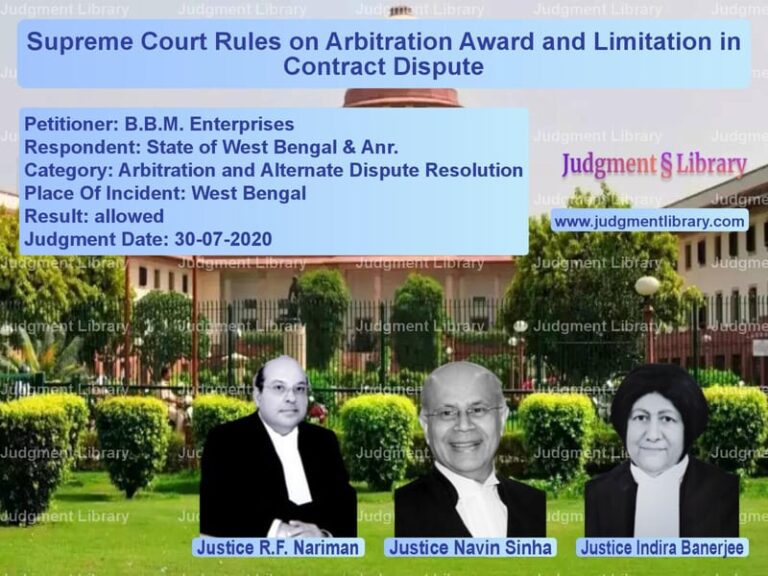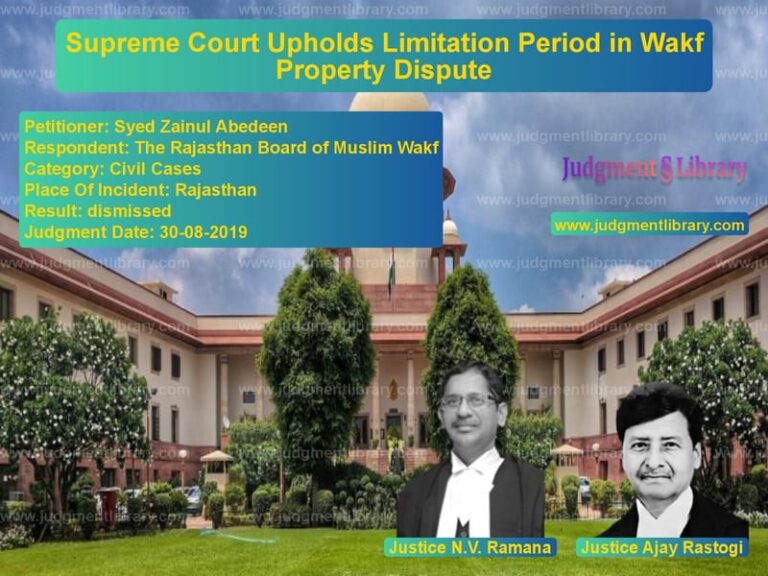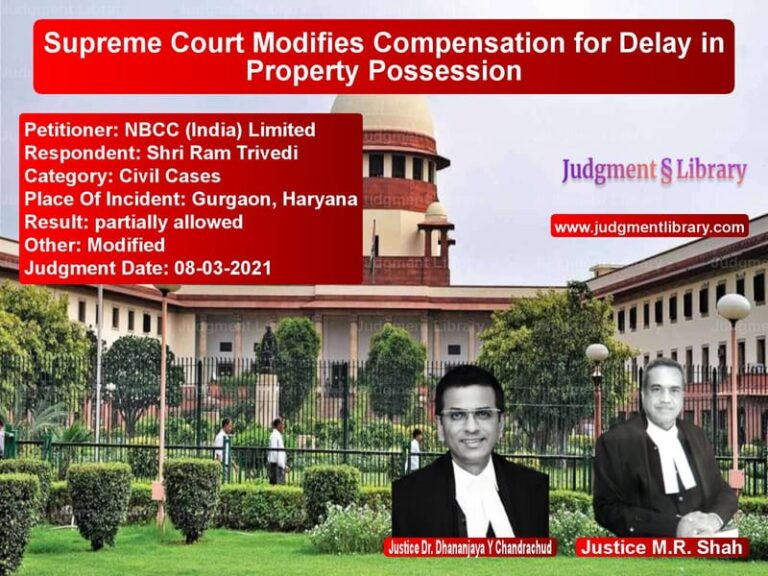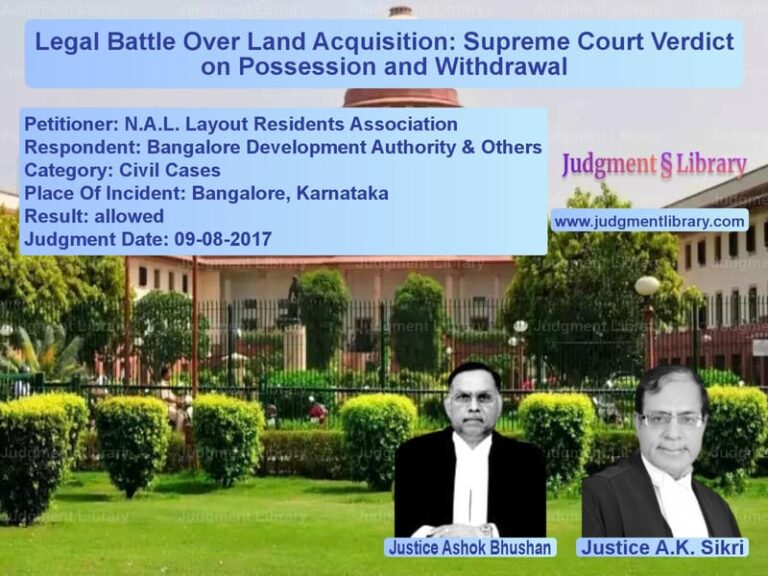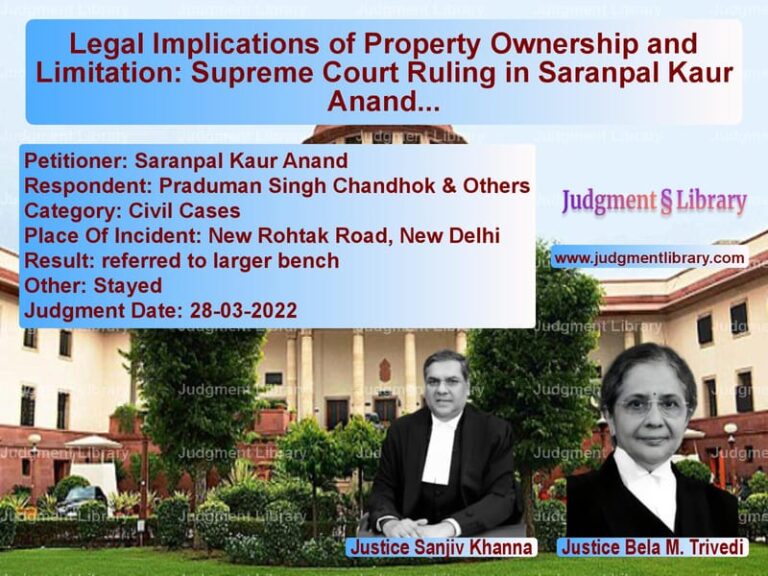Cheque Bounce and Fraud Allegations: Supreme Court Quashes Criminal Proceedings Against Businessman
The Supreme Court of India, in a significant judgment in the case of Raj Reddy Kallem v. State of Haryana & Anr., quashed all criminal proceedings against the appellant arising from a business transaction dispute. The case involved allegations of cheating, fraud, and a bounced cheque issue, ultimately leading to a prolonged legal battle spanning more than a decade. The Court’s decision, invoking Article 142 of the Constitution, underscores the principle that criminal law should not be misused in purely commercial disputes.
Background of the Case
In 2012, the complainant placed an order with the appellant’s company (M/s Farmax) for a Promotec Fiber Laser Cutting Machine and paid an advance of Rs.1.55 crore. However, the appellant’s company failed to supply the machine, leading to the complainant initiating legal action. The appellant issued five cheques to refund the money, but some of these cheques were dishonored. This resulted in multiple legal proceedings:
- A case under Section 138 of the Negotiable Instruments Act (NI Act) was filed due to cheque dishonor.
- A criminal complaint under Sections 406, 420, and 120B of the Indian Penal Code (IPC) was lodged, alleging that the appellant had wrongfully retained the complainant’s money and committed fraud.
Trial and Conviction
In 2015, the trial court convicted the appellant under Section 138 of the NI Act and sentenced him to two years of rigorous imprisonment. However, both parties attempted to settle the dispute before the Lok Adalat, where the appellant agreed to repay Rs.1.55 crore within 16 months. The settlement terms stated that upon full payment, the cheque dishonor and fraud charges would be treated as compounded or quashed.
Despite making partial payments, the appellant failed to meet the settlement deadlines, leading to the Additional Sessions Judge declaring the settlement frustrated in 2016. Over the next few years, the appellant made several attempts to extend the deadline and complete the payment, including approaching the Supreme Court.
Arguments by the Appellant
- The appellant contended that he had repaid the entire Rs.1.55 crore and even deposited an additional Rs.10 lakh as interest for delayed payment.
- He argued that since the complainant had received full compensation, continuing the criminal proceedings served no purpose.
- The appellant relied on previous Supreme Court judgments, which prioritized the compensatory aspect of Section 138 NI Act cases over punitive measures.
Respondent’s Arguments
- The complainant opposed the quashing of criminal proceedings, arguing that the appellant had initially failed to comply with the settlement and that criminal liability should not be waived merely because of repayment.
- The complainant filed an affidavit stating that no settlement had been reached and insisted that the criminal cases should continue.
Key Observations of the Supreme Court
- The Court noted that the NI Act cases are primarily regulatory offenses designed to ensure the reliability of cheques and financial transactions.
- The Court referred to its ruling in Damodar S. Prabhu v. Sayed Babalal H. (2010) 5 SCC 663, which emphasized the importance of compounding offenses in Section 138 cases.
- The Court also discussed the case of Kanchan Mehta v. Kanchan Instruments Pvt. Ltd. (2018) 1 SCC 560, which held that in exceptional cases, courts can close criminal proceedings if the complainant has been duly compensated.
Final Judgment
Invoking its powers under Article 142 of the Constitution, the Supreme Court quashed all pending criminal proceedings against the appellant, including the appeal against his conviction under the NI Act and the IPC charges related to fraud. The Court held:
Read also: https://judgmentlibrary.com/supreme-court-cancels-bail-of-accused-in-ghaziabad-murder-case/
“The transaction between the parties was purely civil in nature. There is no material to show that the appellant had any ill intention of cheating from the very inception. Since the complainant has already received the full amount, there is no justification for continuing the criminal proceedings.”
The Court further directed that all demand drafts deposited in compliance with its orders should be handed over to the complainant.
Implications of the Judgment
- The ruling reinforces the principle that commercial disputes should not be converted into criminal cases unless there is clear evidence of fraudulent intent.
- It emphasizes the importance of ensuring fair treatment to accused individuals who have compensated the complainant.
- By invoking Article 142, the Court ensured complete justice, preventing further legal harassment of the appellant.
Conclusion
The Supreme Court’s decision in this case sets an important precedent for handling cheque dishonor cases and fraud allegations arising from business transactions. It reiterates that while criminal law serves as a deterrent, it should not be misused in commercial disputes where monetary compensation has been made in full. The judgment ensures a fair balance between the rights of the complainant and the accused, reinforcing the compensatory nature of Section 138 of the NI Act.
Read also: https://judgmentlibrary.com/supreme-court-transfers-investigation-of-2013-delhi-murder-case-to-cbi/
Petitioner Name: Raj Reddy Kallem.Respondent Name: State of Haryana & Anr..Judgment By: Justice A.S. Bopanna, Justice Sudhanshu Dhulia.Place Of Incident: Ambala, Haryana.Judgment Date: 08-04-2024.
Don’t miss out on the full details! Download the complete judgment in PDF format below and gain valuable insights instantly!
Download Judgment: raj-reddy-kallem-vs-state-of-haryana-&-a-supreme-court-of-india-judgment-dated-08-04-2024.pdf
Directly Download Judgment: Directly download this Judgment
See all petitions in Fraud and Forgery
See all petitions in Bail and Anticipatory Bail
See all petitions in Attempt to Murder Cases
See all petitions in Cheque Dishonour Cases
See all petitions in Judgment by A. S. Bopanna
See all petitions in Judgment by Sudhanshu Dhulia
See all petitions in allowed
See all petitions in Quashed
See all petitions in supreme court of India judgments April 2024
See all petitions in 2024 judgments
See all posts in Criminal Cases Category
See all allowed petitions in Criminal Cases Category
See all Dismissed petitions in Criminal Cases Category
See all partially allowed petitions in Criminal Cases Category

